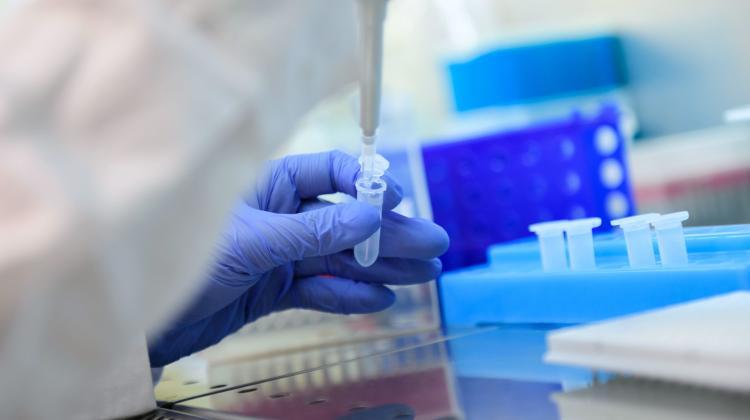Killer Virus Will Adapt to Drugs and Mutate, Top Virologist Warns
 Credit: PAP/ Jakub Kaczmarczyk 22.04.2020
Credit: PAP/ Jakub Kaczmarczyk 22.04.2020
A leading virologists has warned that when coronavirus drugs are developed, they will need to be used with caution, as drug-resistant variants will appear.
Professor Krzysztof Pyrć from the Małopolska Centre of Biotechnology at Jagiellonian University said: “Just like people differ in terms of eye and hair colour, there are differences between coronaviruses.
“Compared to influenza viruses, the change rate of coronaviruses is low.
“Each virus changes over time. Currently, we have closed borders and viruses in Poland are evolving independently of coronaviruses in Germany, for example.
“We see variability that is slightly different in each case, but this does not mean that new strains have actually appeared.
“As for SARS-CoV-2, I expect that separate strains will actually appear over time, but not in the near future.”
When a virus replicates, the enzymes responsible for copying its genetic information (polymerases) sometimes make mistakes. And these mistakes are recorded in the pathogen's RNA. When it comes to coronaviruses, errors occur relatively rarely compared to other RNA viruses.
He added: “Coronaviruses - which are among the largest RNA viruses - are unique because they have their own monitoring system, which assures that there are no errors when copying RNA, and thus during the multiplication of the virus.”
This mechanism prevents coronaviruses from changing as quickly as flu viruses, for example.
Consequently, once effective anti-COVID-19 drugs are developed, it is likely that coronavirus variants resistant to these drugs will appear.
Professor Pyrć said: “We will have to use these drugs wisely, only where they are really necessary. We should not abuse them.
“For now, there are over 100 initiatives in the world aimed at developing a vaccine for coronaviruses. I keep my fingers crossed, but this is experimental work. This is like not building a house or doing a jigsaw puzzle. We can't count on a magical solution to remove the problem.”
He added: “We have been trying to make a vaccine for coronaviruses for 20 years and so far we have failed. But I hope that due to the commitment of such large resources, processing capacity and wise people, we will be able to do it.”
PAP - Science in Poland, Ludwika Tomala
lt/ ekr/ kap/
tr. RL
Przed dodaniem komentarza prosimy o zapoznanie z Regulaminem forum serwisu Nauka w Polsce.



















